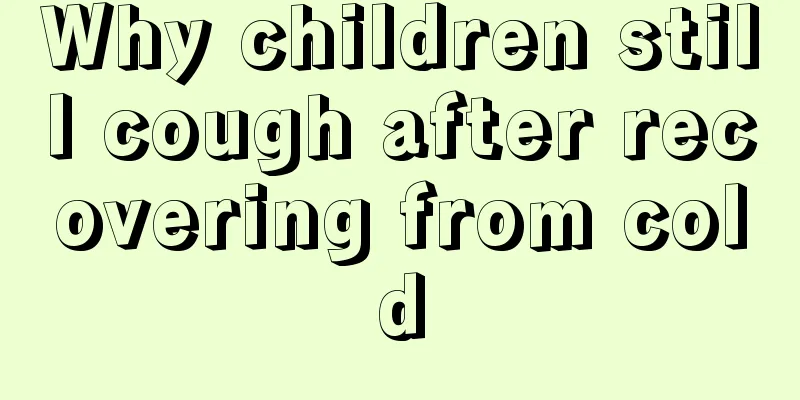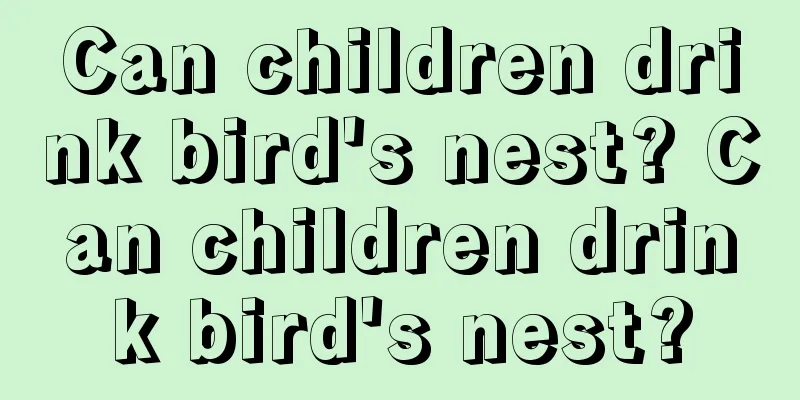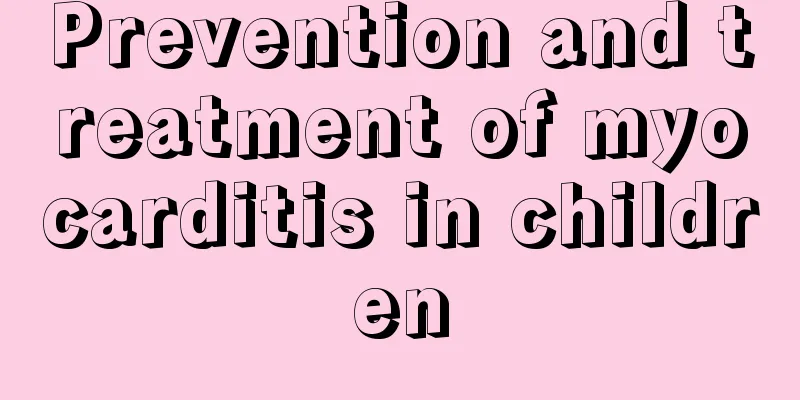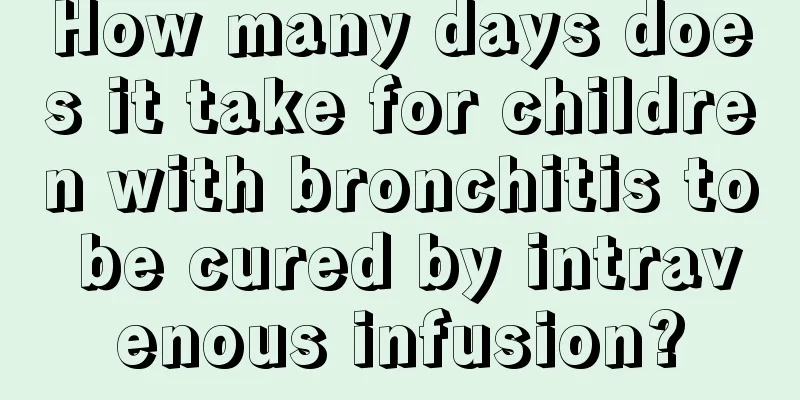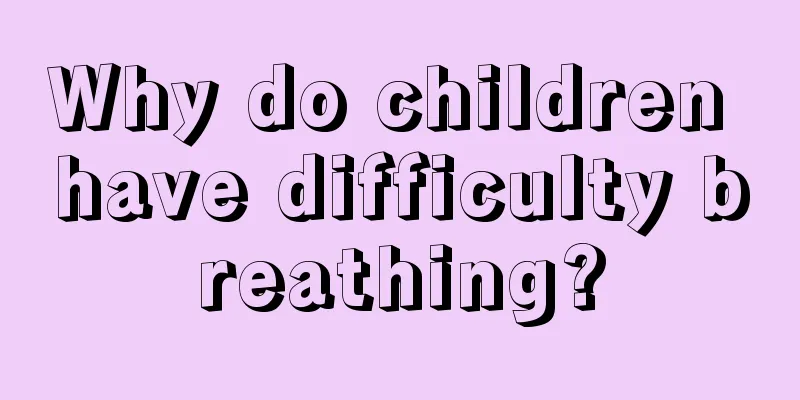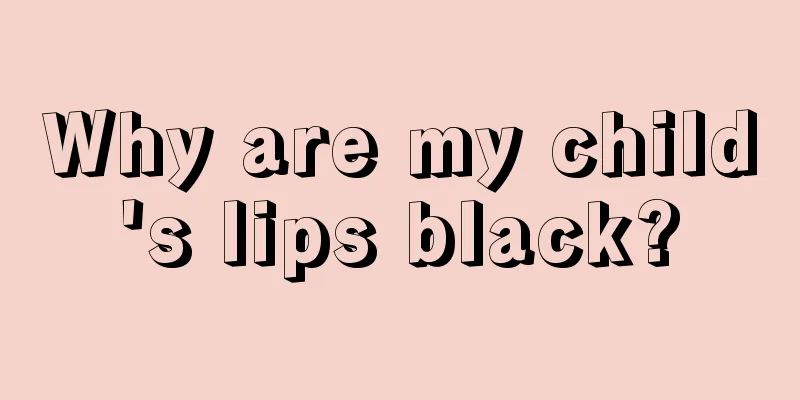What to do if your one and a half year old baby has rhinitis
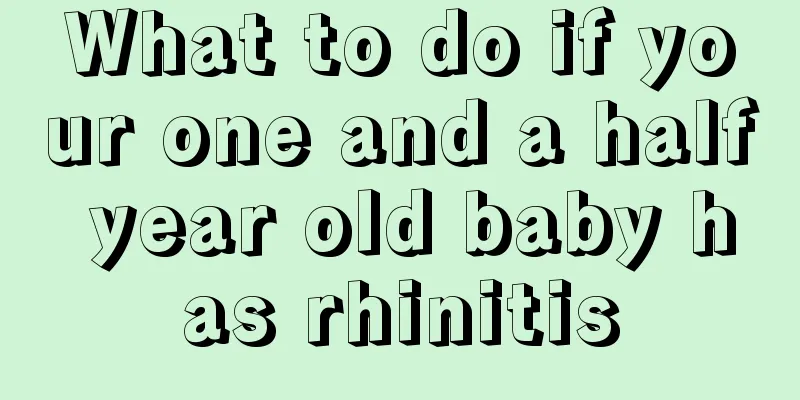
|
Babies are relatively young and have weak resistance, so they are very easy to catch a cold. Some babies keep sneezing after catching a cold. Rhinitis is also accompanied by symptoms such as itchy nose and runny nose, which will make the baby uncomfortable and irritable. Nutrition affects the baby's daily life. If the baby suffers from rhinitis, parents need to pay attention to it. What should I do if my one and a half year old baby has rhinitis? What should I do if my one and a half year old baby has rhinitis? Prevention of baby rhinitis is the best strategy (1) First of all, opening windows frequently to ventilate and keep the indoor air fresh is the simplest and most effective way to prevent colds. (2) Promote scientific parenting, avoid overprotection, and ensure that children are appropriately clothed and covered to keep warm. (3) Engage in outdoor activities regularly and take air baths and sun baths every day to enhance physical fitness and cold resistance. (4) During the winter and spring respiratory disease epidemics, avoid taking your baby to public places where crowds gather. (5) Eat in moderation on a daily basis, do not overeat, do not eat or eat less greasy and indigestible food, and eat more vegetables and fruits. Clinical manifestations of rhinitis in a 1.5-year-old baby At the beginning of the disease, the nasopharynx will feel dry and uncomfortable, with a burning sensation, itchy nose, sneezing, and the baby will always rub his nose. Nasal congestion and clear nasal discharge will appear after 1 to 2 days, and the discharge will become sticky or mucopurulent after 3 to 5 days. Some have an acute onset, and most have fever, with body temperature varying from 38 to 40°C, poor spirits, and irritability. Nasal congestion and throat discomfort affect sleep and reduce appetite. In some cases, due to the decrease in body resistance on the basis of viral infection, the bacteria that usually remain in the nasopharynx take advantage of the opportunity to actively multiply and cause secondary infection, which may lead to complications of pharyngitis and otitis media. Care methods. What causes rhinitis? 1. Local causes: repeated attacks or incomplete treatment of acute rhinitis. Poor ventilation or obstruction of nasal drainage due to prolonged irritation or deformity caused by nearby chronic inflammation, such as chronic sinusitis; improper use of nasal cavity. 2. Systemic reasons: long-term chronic diseases, such as endocrine disorders, cardiovascular diseases, vitamin deficiency, excessive smoking and drinking, and long-term use of blood drugs can cause nasal vasodilation and produce symptoms such as rhinitis. 3. Environmental factors: When children play in places with cement, tobacco, coal dust, flour or chemicals, their nasal mucosa will be stimulated and damaged by physical and chemical factors, which can easily cause rhinitis. Frequent changes in temperature and humidity in the living environment can also easily cause rhinitis. |
>>: What medicine should children take for rhinitis and cough
Recommend
Does your child have a mouthache?
If a child has a sore mouth, parents should pay a...
What is the cause of the child's black teeth?
Every parent does not want their child's teet...
One month old baby crying
The first reaction of a newborn after birth is cr...
Why are children's underwear yellow?
When adult women's underwear turns yellow, it...
What to do if your child coughs and has phlegm
It is common for children to cough with phlegm. T...
How many teeth should be replaced?
Nowadays, many families have only one baby. Many ...
What should I do if my child has flat blood?
Many children will suffer from anemia when they a...
What to do if your child vomits after eating
Children's digestive systems are actually not...
Can babies get rhinitis?
Nowadays, the number of people suffering from rhi...
What should babies with bad stomach eat?
Children can only grow up healthily and happily i...
How to correct hunchback in children
In many people's minds, hunchback has always ...
How to treat ADHD
ADHD is a disease that will manifest itself in ch...
One year old baby's face turns yellow
The babies around one year old that we usually se...
What to do if your 1-year-old baby doesn't have teeth
Baby is a child younger than child, and is a nick...
Is it a calcium deficiency if a child sweats on his head while sleeping?
Many parents will say that their babies often swe...

